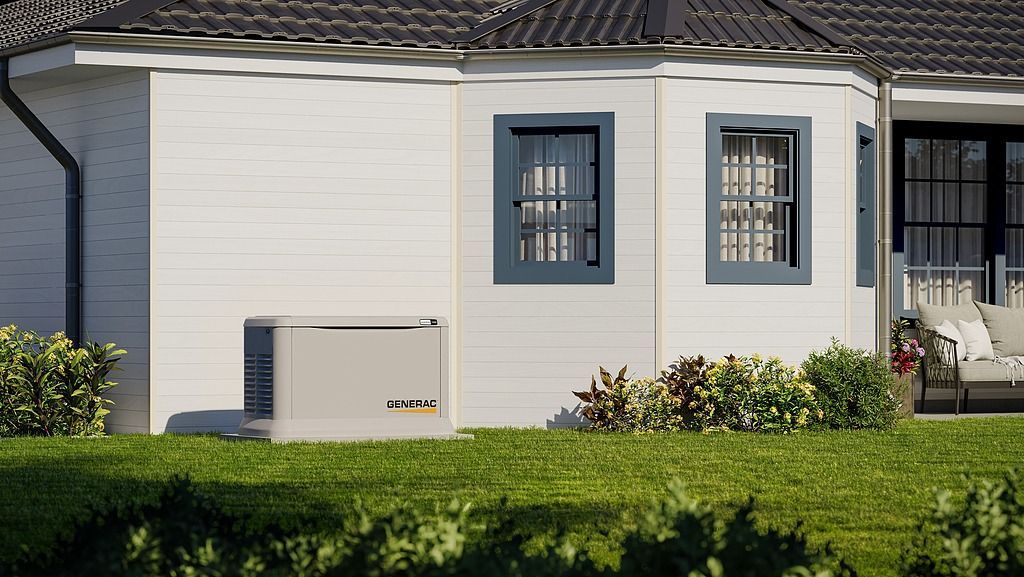What Size Residential Backup Generator Do I Need?
What Size Residential Backup Generator Do I Need?
Choosing a backup generator for your home doesn't have to be complicated, but it's worth taking the time to figure out what you actually need. Many folks guess too low and end up sitting in the dark when the power goes out, while others go overboard and buy a massive generator that they don’t really need.
Our experts at
Premier Generators of Texas can help you determine your realistic power needs upfront. Then, you'll have a generator that keeps you and your family comfortable during outages without emptying your wallet.
Determining Residential Backup Generator Power Requirements
What you'll want to do first is create a comprehensive list of everything you want to keep running during a power outage, including major appliances. Essential items you'll want to have running include:
- Refrigerator.
- Heating and cooling systems.
- Water heater.
- Critical lighting.
- Medical equipment.
- Security systems.
- Wi-Fi.
Each appliance and system in your home has a specific wattage requirement, found on the manufacturer's label or in the product’s owner's manual. However, it’s vital not just to add up these numbers, as motors and compressors require power boosts during startup and their normal operational needs. That surge wattage can be two to three times higher than the running wattage.
Types of Generac® Generator Sizes
We’re a factory-certified Generac® generator dealer. These units can range from 500W to over 140kW. Residential backup generators typically range from seven kilowatts to 48 kilowatts. Smaller units between seven and 16 kW are suitable for powering essential circuits only, like refrigeration, lighting, and some outlets. They can run heating or cooling, but not usually both at the same time.
Mid-range generators from 17 to 20 kW suit most average-sized homes. These units can power your essential appliances and central air conditioning in homes up to 3,000 square feet. You'll remain comfortable and keep your critical systems operational.
Larger homes over 3,500 square feet can require generators rated at 22 kW or higher. Properties with pools, hot tubs, workshops, or multiple HVAC zones may need units with capacities ranging from 30 to 48 kW. Generac® generators offer options across this entire spectrum, and homeowners depend on them for reliable backup power.
Commercial Backup Generators
Business owners have different backup generator needs compared to typical residential installations. Typically, a commercial backup generator must meet stricter building codes and handle sustained heavy loads.
If you have an office with centralized data storage and processing hubs, a medical practice, or operate manufacturing equipment, discuss these specialized needs with our team. The commercial backup generator sizing methodology differs significantly from standard residential applications.
Calculating Your Specific Generator Power Needs
To calculate your generator power needs, start by separating your electrical loads into two categories: must-have and nice-to-have:
- Must-have items ensure safety, food preservation, data protection, and basic comfort
- Nice-to-have items include conveniences you can temporarily go without, like a hot tub.
Add the running wattage for all must-have items, then identify which device has the highest starting wattage. Then, add that surge value to your total running wattage. That calculation provides your minimum generator requirement. We recommend adding 20-30% capacity above this minimum to allow headroom in case of future needs or unexpected circumstances.
Most HVAC systems take up the largest electrical load in any home. A central air conditioner typically requires 3,000 to 5,000 watts to run, with startup surges reaching 7,000 to 9,000 watts. Electric furnaces demand even more power. If whole-house comfort is the priority, factor these requirements into your calculations.
Professional Load Calculations
While DIY calculations offer helpful estimates, our certified Premier Generators of Texas team can calculate your actual usage patterns and recommend the most suitable sizing. We handle the calculations, provide estimates, and handle turnkey installation.
We can also suggest load management systems. These smart devices automatically prioritize circuits during operation, allowing a smaller generator to power more equipment by cycling non-essential loads on and off. Not only is that convenient, but this technology can offset your initial investment over time.
Commercial and Residential Backup Generator Budgeting
Our Premier Generators of Texas team always considers client budgets. The installation costs increase with generator size, as larger units require more substantial concrete pads, bigger fuel lines, and upgraded electrical connections. It makes sense to balance your desire for full coverage against practical financial matters.
Think about typical outage durations in your area, too. Homes and businesses that experience frequent, prolonged outages benefit more from robust systems than those that encounter occasional, brief interruptions.
And, if you rely on electric heating or cooling, you’ll need a larger capacity than homes or businesses with gas furnaces.
Find the Best Backup Generator Installer Near Dallas-Fort Worth, TX
At Premier Generators of Texas, we power homes and businesses near the DFW metro area, giving clients confidence in facing outages. We conduct thorough assessments, have full-service maintenance departments, and have 24/7 emergency access.
Contact us for an appointment online or call us at
(214) 945-2525 to learn more about finding the right backup generator size for your residential home. We proudly serve Dallas, Fort Worth, Colin County, McKinney, Plano, Tarrant County, and Denton County, TX.


